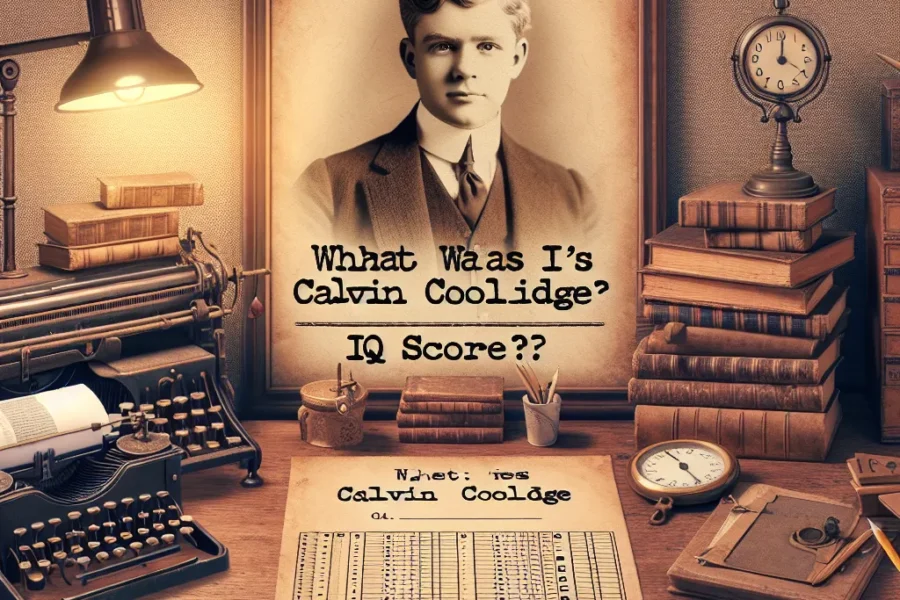Warren G. Harding, the 29th President of the United States, remains a figure shrouded in historical debate and controversy. Born on November 2, 1865, in Blooming Grove, Ohio, Harding’s presidency from 1921 to 1923 is often remembered for its scandal-ridden nature. However, one topic that rarely surfaces in discussions about his tenure is his IQ score. The concept of IQ, or Intelligence Quotient, as a standard measure of human intelligence, has piqued the curiosity of many scholars, historians, and the general public alike. What was Warren G. Harding’s IQ score, and what does it reveal about his intellectual capabilities?
If you are looking for legitimate IQ Tests which pass the entry bar for Mensa, see our IQ Tests.
To answer this question comprehensively, it is essential to delve into the very concept of IQ. The term “IQ” was coined in the early 20th century as a way to quantify intelligence using standardized tests. The French psychologist Alfred Binet initially developed these tests, and they were later revised by Lewis Terman at Stanford University, leading to the Stanford-Binet Intelligence Scales. These tests aimed to provide an objective measure of cognitive abilities, such as logical reasoning, problem-solving, and comprehension.
Warren G. Harding’s era, from the late 19th century to the early 20th century, was a period of burgeoning intellectual and scientific advancements. Public interest in measuring human intelligence was rising, thanks to the popularity of IQ tests. This interest often extends retrospectively, with people keen to evaluate historical figures using modern methods. However, quantifying the IQ of a historical figure like Harding involves both speculation and the application of retrospective analysis, primarily because no standardized IQ tests were administered during his lifetime.
Moreover, Warren Harding’s life and political career should be examined within the context of his time. Before becoming President, Harding served as a U.S. Senator from Ohio and as the Lieutenant Governor of Ohio. He was also a successful newspaper publisher. Known for his charismatic personality and oratorical skills, Harding enjoyed considerable popularity. Despite these attributes, Harding’s intellectual capabilities were often subjected to scrutiny by his contemporaries and historians alike. Critics accused him of lacking the intellectual depth required for presidential duties. In particular, his speeches, though engaging, were often criticized for their vagueness and lack of substantive content.
Historians and scholars frequently rely on anecdotal evidence and contemporaneous accounts to estimate historical figures’ IQs. According to some sources, Harding’s IQ has been speculated to fall within the range of 115 to 125. In modern IQ categorization, this range is considered “above average” but not “genius” or “very superior.” To provide context, an IQ score of 100 is considered average. Hence, if Harding’s IQ did indeed fall within the 115 to 125 range, it would position him above the average intelligence level but not among the most intellectually elite.
While the speculative range mentioned may align with certain perceptions of Harding’s intellectual capabilities, it is essential to understand the limitations of these estimates. IQ scores provide a snapshot of cognitive abilities but do not encapsulate the entirety of one’s intellectual potential, creativity, political acumen, or moral integrity. It is worth noting that Harding’s tenure as President was marked by both achievements and significant failures.
Harding’s administration witnessed some notable accomplishments, such as the establishment of the Bureau of the Budget and the promotion of the Washington Naval Conference, which sought to prevent an arms race after World War I. These initiatives highlight Harding’s capacity to enact meaningful policies. However, his presidency is more infamously remembered for the Teapot Dome scandal, one of the most significant political scandals in American history. The scandal involved members of Harding’s administration, who were found guilty of accepting bribes in exchange for leasing federal oil reserves without competitive bidding. The corruption and scandals surrounding his administration tarnished Harding’s reputation and led to his posthumous judgment as one of the less effective Presidents in American history.
Given the complex nature of intelligence and the multifaceted challenges of the presidency, relying solely on an IQ score to evaluate Harding’s competence would be reductive. Moreover, Harding’s intellectual life was influenced by various external factors, including his upbringing, education, and the sociopolitical environment of his time. Born to a moderately prosperous family, he grew up in a community that valued education and public service. Harding attended Ohio Central College, where he excelled in debate and public speaking, skills that later aided his political career.
Another essential aspect to consider is Harding’s emotional intelligence, which encompasses skills such as empathy, interpersonal communication, and leadership abilities. Emotional intelligence (EQ) is increasingly recognized as valuable, if not more so than traditional cognitive intelligence, especially in leadership roles. Harding’s congenial demeanor and networking capabilities were crucial assets in his political ascendancy. His ability to connect with people and navigate the complexities of political alliances played a significant role in his rise to the presidency.
In addition to cognitive and emotional intelligence, practical intelligence—also known as “street smarts”—is another critical facet often overlooked in traditional IQ assessments. Practical intelligence refers to the ability to adapt to, shape, and select environments to accomplish personal and professional goals. Harding demonstrated practical intelligence in his adept management of his newspaper business and his strategic maneuvering within the Republican Party.
To fully appreciate Harding’s intellectual legacy, it is essential to move beyond the simplified metric of an IQ score and embrace a more holistic interpretation of intelligence. This approach allows for a deeper understanding of Harding not just as a President but as a multifaceted individual who navigated the complexities of early 20th-century American politics.
In conclusion, while it is tempting to fixate on obtaining an IQ score for Warren G. Harding to gauge his intellectual prowess, such an endeavor is fraught with limitations and conjecture. Based on anecdotal evidence, Harding’s speculated IQ range of 115 to 125 suggests he had above-average intelligence. However, this narrow focus on numerical valuation overlooks the broader spectrum of skills and attributes vital for effective leadership and public service. Warren G. Harding’s legacy is a tapestry woven with both significant achievements and notable failures, shaped by a confluence of cognitive abilities, emotional intelligence, practical skills, and historical circumstances. Understanding Harding in his entirety provides a richer, more nuanced perspective on his role in American history.



Leave a Comment